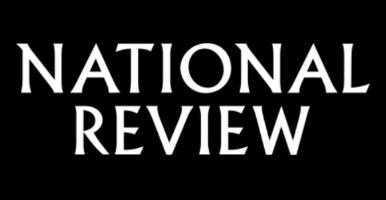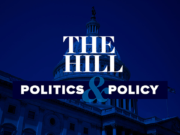It may shock you to learn that the multimillionaire co-founder of a global ice-cream empire has been meeting with elected officials in the hopes of fundamentally altering our Constitution. This individual proposes amending the Bill of Rights for the first time to give Congress nearly unlimited power to limit political speech.
That’s right — Big Ice Cream is trying to undermine our democracy. Or at least that’s how it would be put if the wealthy founder of some other, less progressive company tried the same tactics.
In late August, Ben Cohen — the “Ben” in Ben & Jerry’s — appeared at a Philadelphia rally hosted by American Promise, an organization that effectively wants to rewrite the First Amendment. Cohen was there to support four state representatives pushing a resolution in the Pennsylvania General Assembly. That resolution calls on Congress to amend the U.S. Constitution to create a “distinction between the rights of natural persons and the rights of corporations, unions, and other legal entities under the First Amendment” and to give “Congress and state legislatures the power to regulate political contributions and expenditures.”
In other words, it would grant politicians the power to ban and censor speech. What could possibly go wrong?
Pennsylvania would be the 20th state to pass such a non-binding resolution. Advocates claim it is necessary to undo the Supreme Court’s Citizens United decision. Though the court never actually mentioned corporate personhood in that decision, it’s since become popular to argue that “corporations aren’t people,” and that the decision claimed otherwise. That argument is extremely misguided, and the proof is in the solution its adherents propose, which would deny citizens who join together to promote a cause they care about their First Amendment free-speech rights.
One of the lawmakers who appeared at the Pennsylvania event has argued that corporations must be kept out of politics, since they don’t have the interests of voters at heart. “[Businesses] don’t always have a solid relationship with the communities that they are located in but will leave at the moment that [it] is of benefit to them.”
This brings us back to Ben Cohen, who runs a Vermont-based business but is advocating for legislation in Pennsylvania. He thinks “big money in politics is the root of injustice.” But if he hadn’t gotten rich selling ice cream, he wouldn’t have the public platform he currently enjoys.
He thinks ‘big money in politics is the root of injustice.’ But if he hadn’t gotten rich selling ice cream, he wouldn’t have the public platform he currently enjoys.
There is certainly nothing wrong with Cohen’s expressing his views on a political issue. In the past, he has argued that “corporations can serve the needs of society,” in keeping with the increasing demands of the left for progressive corporate activism. The problem is that Cohen’s campaign-finance platform would curtail for others the right that he so proudly exercises — namely, the ability to dedicate resources to causes he cares about.
Make no mistake, Cohen’s influence on public debate — he regularly flaunts his activism and was even arrested at a Capitol protest in 2016 — is directly connected to his brand’s success. And though he sold his stake in Ben & Jerry’s seventeen years ago, the company itself still carries on his political legacy. Its website prominently advocates for overturning Citizens United, as well as for issues like “climate justice” and mandatory GMO labeling. The company also decides how it will sell its products in foreign countries based on their marriage laws
Cohen’s hypocrisy, however, isn’t nearly as alarming as the substance of his aims.
Imagine what would happen if the Constitution didn’t apply to entities like corporations. The government could easily outlaw political speech like that on the Ben & Jerry’s website.The FCC could censor news organizations for any reason. The FBI could remove documents from offices without a warrant. The government could seize corporate property on a whim.
During oral argument in Citizens United, the Obama Administration’s lawyer actually argued that campaign-finance laws allowed federal agencies to ban movies and books if they advocated for or against a federal candidate. Would the government ever exercise that power? Maybe, maybe not. But if Cohen got his way, there would be nothing to stop it from doing so should it want to.
COMMENTS
Even if they aren’t literally human, corporations have been treated as legal persons for centuries. They are an important means for individuals to organize together to accomplish their goals. The Supreme Court emphasized the importance of corporate rights as early as 1819, in Trustees of Dartmouth College v. Woodward. Attempts to strip organizations of their rights are thus both unwise and ahistorical.
The fact is, an individual doesn’t lose the right to speak on political issues when he or she joins with other like-minded individuals. Ordinary citizens can and should use collective action to amplify their voices — whether in a union, a PAC, or an advocacy group. Shutting down group speech makes it harder to stand up to those who are individually powerful — those like Ben Cohen.
This post originally ran in National Review on September 12th 2017.














